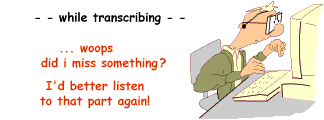|
|
Question: What is a packet? |
|
Answer: Packets are small blocks of information that are transported across the internet. |
The data as a whole is broken down into smaller parts before it is sent across the internet. Transmission is more efficient by sending these smaller blocks of information and verifying that they each arrive. It takes less time to re-send one small block of information that didn't show up or got mixed up in route than re-sending the entire set of data
Going out on a limb here - but - if you think about someone transcribing information. The process is similar to listening to small pieces of information - verifying to yourself that it is accurate - entering the data - rewinding when necessary - ending up with an exact copy somewhere else.

Packets on the internet contain:
- router information - to help point the way to their destination
- header information - IP addresses of origin and destination
- TCP/IP information - method of breaking down - placing header info - determining size of packets - sending packets - ensuring arrival - re-sending bad packets - verifying data
- the actual data - of course, this is why it is being sent
Question: Why doesn't it just send the whole thing at once?
- Answer: If just one bit of data got lost, mixed up or jumbled,
the whole thing would have to be re-sent. By sending smaller packets - when something has
to be re-sent it's just a small part and not the whole thing.
8969
|
|
Back to Internet 101 |